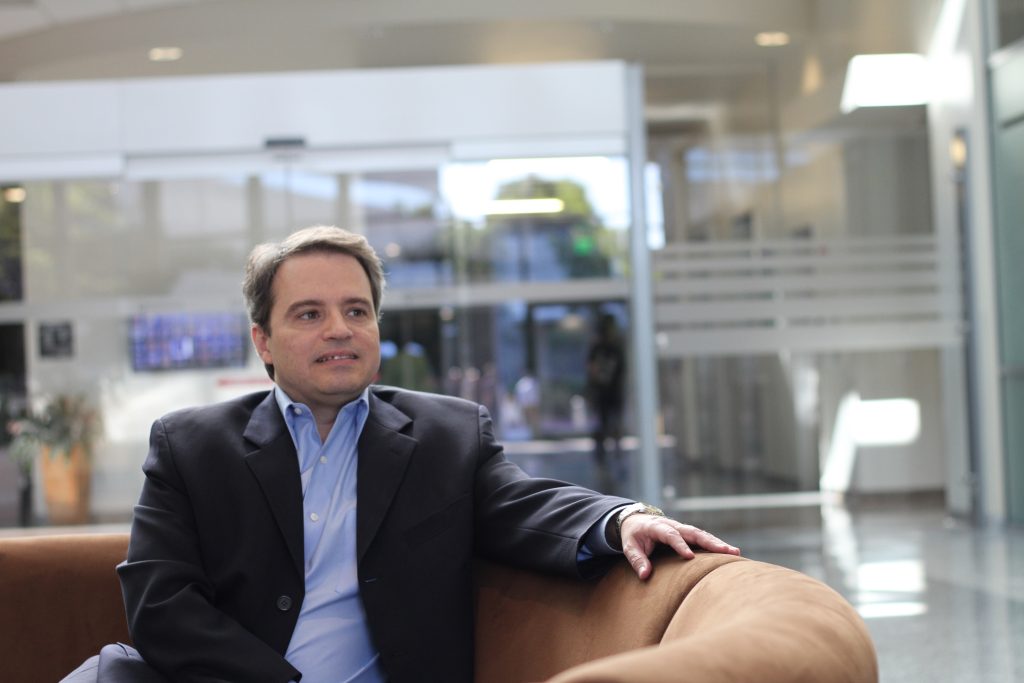29/09/2022
CRACKS of technology’ is a weekly series of interviews, through which we want to give voice to those IT professionals who are absolute geniuses of technology in Spain. We want to hear from them, to know and recognize the work they do in these companies; to know what they are passionate about and what advice they have for those who will come after them.
As the culmination of the series ‘Cracks of technology’ we have Eduardo Esteves, one of the heavyweights of Qualcomm at international level, who has recently been entrusted with the responsibility of engineering from the Spanish subsidiary. As Global Vice President of Engineering, Esteves brings us an authoritative view on the quality of technology talent in different corners of the world.
Fascinated by the metaverse and the opportunities that the so-called ‘Web 3.0’ will bring us, he assures that Spain has the ideal pool of specialists to climb positions as an international development hub.
Q.- In your words, what is the metaverse and what form do you think it will take?
A.- The metaverse will emerge from a more natural integration between the online and offline worlds. How it will be is still a mystery, because it will depend on which companies manage to impose themselves and, with them, their vision of how these new experiences should be made tangible.
In my opinion, there will be a single metaverse, just as today there is only one Internet. Within this, however, we will find different services and applications and we are confident that Qualcomm will play a relevant role in this emerging market.
We have been working on extended reality for many years, fifteen years since we started R&D in this area, and today we are able to offer very efficient processing technologies, especially for small devices. This expertise gives us a competitive advantage over the future metaverse, because it will most likely rely on small devices such as smart glasses, virtual reality headsets and, of course, smartphones.
“The metaverse will be supported by equipment such as smart glasses, virtual reality headsets and smartphones.”
Q.- What kind of technologies are you developing for the emerging metaverse?
A.- Hardware, of course, but also computing algorithms, i.e. software. We have recently opened the Snapdragon Spaces XR platform, precisely so that developers around the world can have access to these algorithms and, on top of them, create new applications and extended reality experiences.
In short, Qualcomm wants to remain a key enabler for creators to imagine and develop the digital services of the future, just as it did with mobile technology.
Q.- Do you dare to imagine what kind of applications will exist in a few years?
A.- Impossible! Look at the number of applications we use every day on our smartphones that would have been unimaginable twenty years ago. Yes, I would dare to predict a take-off of what we call “spatial computing”, which consists of combining on and offline experiences through technology. A clear example is smart glasses, which we wear on the physical plane and complement our senses with projections of digital information. Vice versa, virtual reality brings to the digital world experiences that exist in the physical environment.
This is very complex, because it requires a very deep understanding of what actions and movements are natural, efficient or intuitive for people. In some cases, these actions will be learned – for example, to turn on the light we press a switch – and other times they will be innate.

Eduardo Esteves, VP Engineering at Qualcomm.
Q.- What kind of professional profiles, apart from purely IT personnel, will the construction of space computing require?
A.- Indeed, building new valuable and creative experiences where on- and offline environments merge requires an understanding of human behavior. People differ from machines in that we have an understanding of the world around us, of the context of things, of how people interact and how we perceive things. Teaching that context to artificial intelligence represents an immense challenge that cognitive science is trying to address and that leads us to seek more and more talent and collaborations in this area.
Don’t think we’re talking science fiction: many of these technologies are just around the corner.
“Building valuable and creative new experiences where on- and offline environments merge requires an understanding of human behavior.”
Q.- Undoubtedly, technology is advancing at a great speed.
A.- So much so that in many cases technology is ahead of people’s needs. I have been working at Qualcomm for 25 years and, in this time, I have been able to experience first-hand the construction of the mobile Internet. Back then, I remember that people didn’t see the point of carrying a small computer in your pocket. I have the feeling that we are living through an inflection point very similar to that one, which in this case will precede the explosion of space computing and the metaverse.
Personally, I feel very fortunate to work in this sector, particularly in a company that is so strongly committed to R&D; I believe we are living in fascinating times in which digital technology is changing the world. Over the past two years, technology has helped us cope with the pandemic and get on with our lives during periods of confinement. This is just one example of the benefits that technology can bring to all of us.
Q.- Qualcomm, a company that invests heavily in long-term innovation and plays an important role in the global semiconductor business, is increasing its presence in Spain. Is that a good indication of the future of our country?
A.- It is a very good sign, without any doubt. At Qualcomm we have engineering teams in Spain and they are very good, at least in the extended reality areas, which are the ones I touch more directly. There are very good graphic designers, specialists in computer vision systems and artificial intelligence, among them software engineers with experience in the video game industry, robotics or navigation systems.
Therefore, we will continue to hire personnel for the Madrid offices, but also Spanish talent to work remotely for different locations of the company.
Q.- Do you believe that Spain can actively participate in the construction of the future metaverse?
A.- Technology is built where there is talent. If we think of the metaverse as a great evolution of the Internet, and not exclusively as a series of applications where you interact with an avatar that looks like you, we realize that the opportunities are immense.
In my opinion, beyond avatars, I believe that the great terrain to be explored and exploited lies in the application of augmented reality to many areas of our lives. Time will tell. What I do know is that the applications of the metaverse that will be most successful will be those that are useful to people; that will be the decisive element. Qualcomm has launched a contest to gather ideas from developers, Snapdragon Spaces Pathfinder program, with the idea of co-funding and supporting the best projects. I know that some Spanish developers have participated, but we would like to encourage many more to do so.










